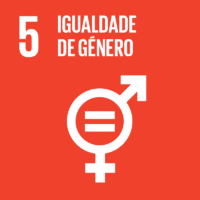Ciência_Iscte
Publicações
Descrição Detalhada da Publicação
Multiple and intersectional discrimination and mental health of migrant populations in Portugal after the COVID-19 pandemic
Título Revista
International Journal of Migration, Health and Social Care
Ano (publicação definitiva)
2024
Língua
Inglês
País
Reino Unido
Mais Informação
Web of Science®
Scopus
Google Scholar
Esta publicação não está indexada no Overton
Abstract/Resumo
Purpose
A growing body of evidence suggests that experiences of discrimination may affect physical and mental health through multiple pathways. This paper aims to characterize the extent of everyday perceived discrimination among Brazilian and Cape Verdean immigrant adults in Portugal, to identify its forms and analyze its association with mental health.
Design/methodology/approach
This study draws on data from the EQUALS4COVID19 (Equity in health in times of pandemic) project that implemented a cross-sectional survey combining online and face-to-face questionnaires for data collection between February and November 2022.
Findings
Women were less likely than men to report no discrimination experiences and more likely to report combined bases of discrimination. While Brazilian women were more likely than Cape Verdean counterparts to report gender and nationality-based discrimination, Cape Verdean women and men were more likely to report experiencing race-based discrimination. Gender (being identified as a woman) and length of stay in Portugal were the main predictors of depression, while resilience and perceived social support were protective factors. Participants with higher levels of resilience showed a significantly diminished association between perceived discrimination and depressive symptoms.
Practical implications
This study highlights the need for further research on the interlocking influences of gender, race, nationality and other structures of power, on health and illness to increase our understanding of what would help meet the specific needs of migrants’ mental health and improve equitable health care.
Originality/value
The findings on the multiple and intersectional discrimination perceived by the Brazilian and Cape Verdean populations in Portugal illustrated the ways mental health can be affected by social structures, such as gender and ethnic hierarchies, and can be used to inform the relevance to design and implement programs on combating individual and institutional discrimination and improving the rights of all people.
Agradecimentos/Acknowledgements
--
Palavras-chave
Mental health,Gender discrimination,Health equity,Minority health,Racial and ethnic discrimination
Classificação Fields of Science and Technology
- Ciências da Saúde - Ciências Médicas
- Sociologia - Ciências Sociais
Registos de financiamentos
| Referência de financiamento | Entidade Financiadora |
|---|---|
| PT/2021/FAMI/697 | Asylum, Migration and Integration Fund |
Projetos Relacionados
Esta publicação é um output do(s) seguinte(s) projeto(s):
Contribuições para os Objetivos do Desenvolvimento Sustentável das Nações Unidas
Com o objetivo de aumentar a investigação direcionada para o cumprimento dos Objetivos do Desenvolvimento Sustentável para 2030 das Nações Unidas, é disponibilizada no Ciência_Iscte a possibilidade de associação, quando aplicável, dos artigos científicos aos Objetivos do Desenvolvimento Sustentável. Estes são os Objetivos do Desenvolvimento Sustentável identificados pelo(s) autor(es) para esta publicação. Para uma informação detalhada dos Objetivos do Desenvolvimento Sustentável, clique aqui.

 English
English




